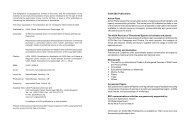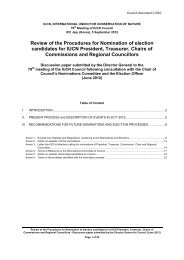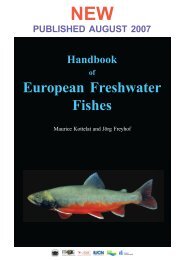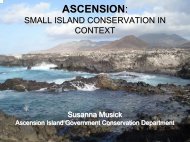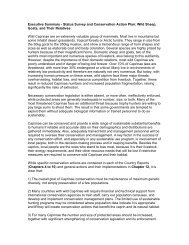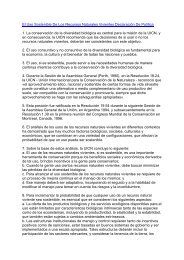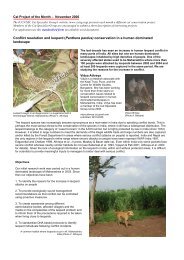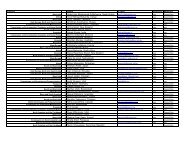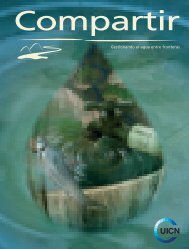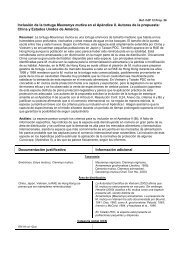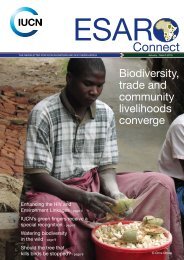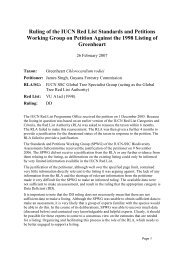Planning education to care for the earth - IUCN Knowledge Network
Planning education to care for the earth - IUCN Knowledge Network
Planning education to care for the earth - IUCN Knowledge Network
You also want an ePaper? Increase the reach of your titles
YUMPU automatically turns print PDFs into web optimized ePapers that Google loves.
A basis <strong>for</strong> environmental <strong>education</strong> in <strong>the</strong> SahelRaphael NdiayeAbstractEffective environmental <strong>education</strong> programmes in <strong>the</strong> Sahel recognise<strong>the</strong> importance of first understanding <strong>the</strong> people's perceptions of <strong>the</strong>environment, obstacles <strong>to</strong> change in practice, as well as <strong>the</strong> ways inwhich in<strong>for</strong>mation is communicated. The stages in <strong>the</strong> environmental<strong>education</strong> process are described as are <strong>the</strong> ways programmes in <strong>the</strong>region have been developed by different agencies. Succesfullprogrammes have stimulated action by groups <strong>to</strong> improve <strong>the</strong> localenvironment.Why environmental <strong>education</strong>?The complicated environmental situation in <strong>the</strong> Sahel involving excessivede<strong>for</strong>estation, endemic drought, overgrazing, difficult access <strong>to</strong> water,wind erosion and delicate ecosystems has reached a point where evenhuman survival in <strong>the</strong> region is in question.In spite of many programmes of re<strong>for</strong>estation, very strong pressuresexperienced since <strong>the</strong> colonial era have hindered ef<strong>for</strong>ts <strong>for</strong> conservation,res<strong>to</strong>ring wildlife balance, and rational environmental and naturalresources management. It is clear that additional strategies are required.Approaches of in<strong>for</strong>mation, awareness-raising and social mobilizationrelated <strong>to</strong> conservation and res<strong>to</strong>ration of <strong>the</strong> environment must beintegrated in a broad process of environmental <strong>education</strong>.Environmental <strong>education</strong> can awaken communities <strong>to</strong> <strong>the</strong> dangers facing<strong>the</strong>ir environment. It can develop local capacities <strong>to</strong> understand andanalyse this situation and arouse a sense of responsibility <strong>to</strong> face <strong>the</strong> issue.It can promote appropriate attitudes and behaviour, teach simpletechniques and practices and prompt action in favour of conservation,protection, res<strong>to</strong>ration and improvement of <strong>the</strong> environment. Althoughuntil now aimed at Sahel children and youth, <strong>the</strong> environmental <strong>education</strong>approach offers a unified strategy <strong>for</strong> wider application. Implementationhowever implies taking in<strong>to</strong> account two sets of fac<strong>to</strong>rs:• <strong>the</strong> target population's basic concepts and perceptions in<strong>the</strong> field of environment and <strong>the</strong>ir bearing on <strong>the</strong><strong>education</strong>al processes;21



